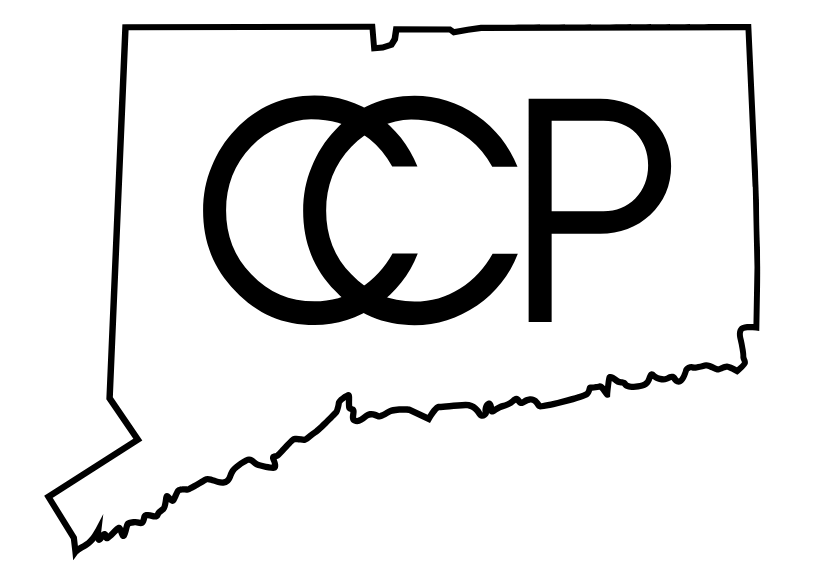Participants
Principal Investigator
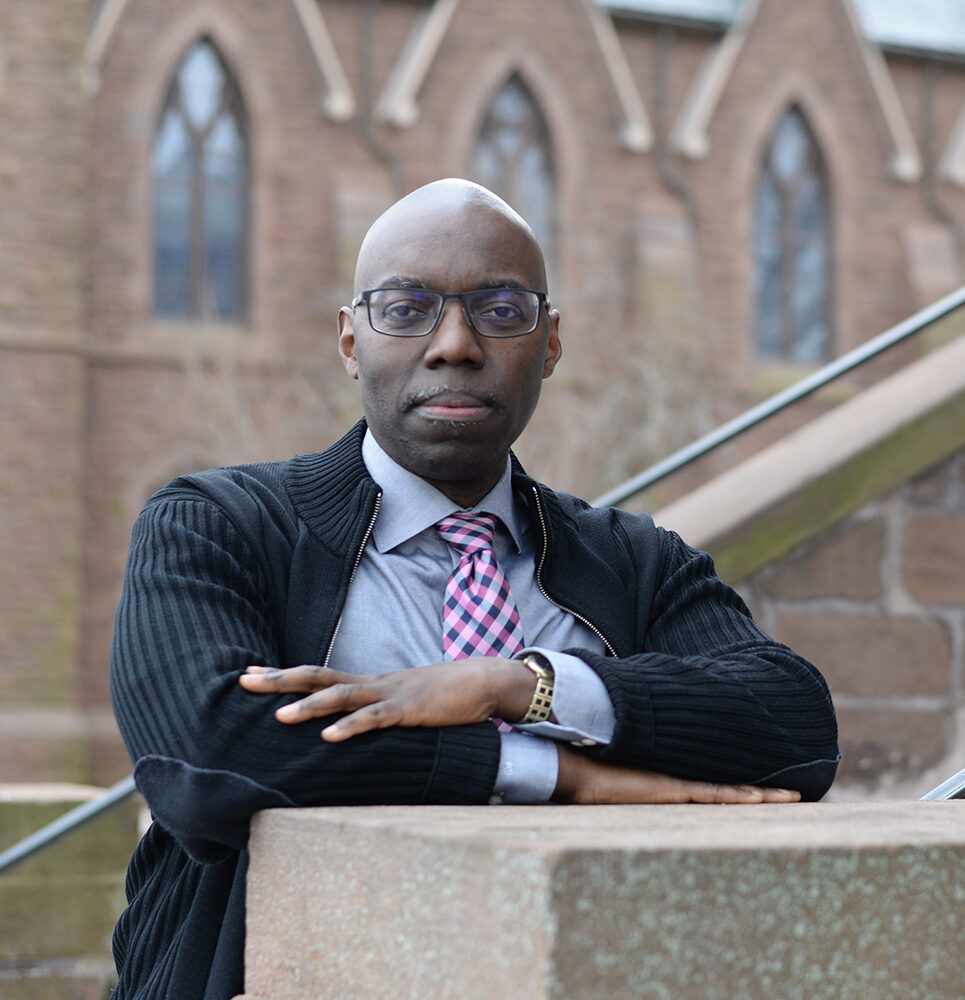
Demetrius L. Eudell, PI
Dean of the Faculty, Professor of History, Vassar College
Former Dean of Social Sciences, Professor of History, Emeritus, Wesleyan University
Demetrius L. Eudell specializes in 19th-century U.S. history, intellectual history, and the history of Blacks in the Americas. He received his B.A. in French from Dartmouth College and his Ph.D. in U.S. history from Stanford University. In addition to a number of essays and articles on Black intellectual and cultural history, he is the author of The Political Languages of Emancipation in the British Caribbean and the U.S. South; editor of We Must Learn to Sit Down Together and Talk About a Little Culture: Decolonising Essays, 1967-1984 by Sylvia Wynter; and co-curator/co-editor of Lichtenbergs Menschenbilder: Charaktere und Stereotype in der Göttinger Aufklärung. Current research projects include another critical edition of the works of Sylvia Wynter; a collection of essays on race and politics in the Americas; and an examination of human differences in the 18th century German Enlightenment (Aufklärung).
In addition, to serving as principal investigator, managing the administrative and financial aspects of the grant, Eudell oversaw the research conducted for the Cintron case. As well, he offered an an upper-level seminar on “Policing in the United States” that examined the theory and practice of policing in several domains and from different perspectives. The course explored the origins of the surveillance state and the creation of the FBI; the militarization of police forces; the role and experience of Black police officers; and the complex relation of policing to social movements and issues of racial justice.
Research Assistants
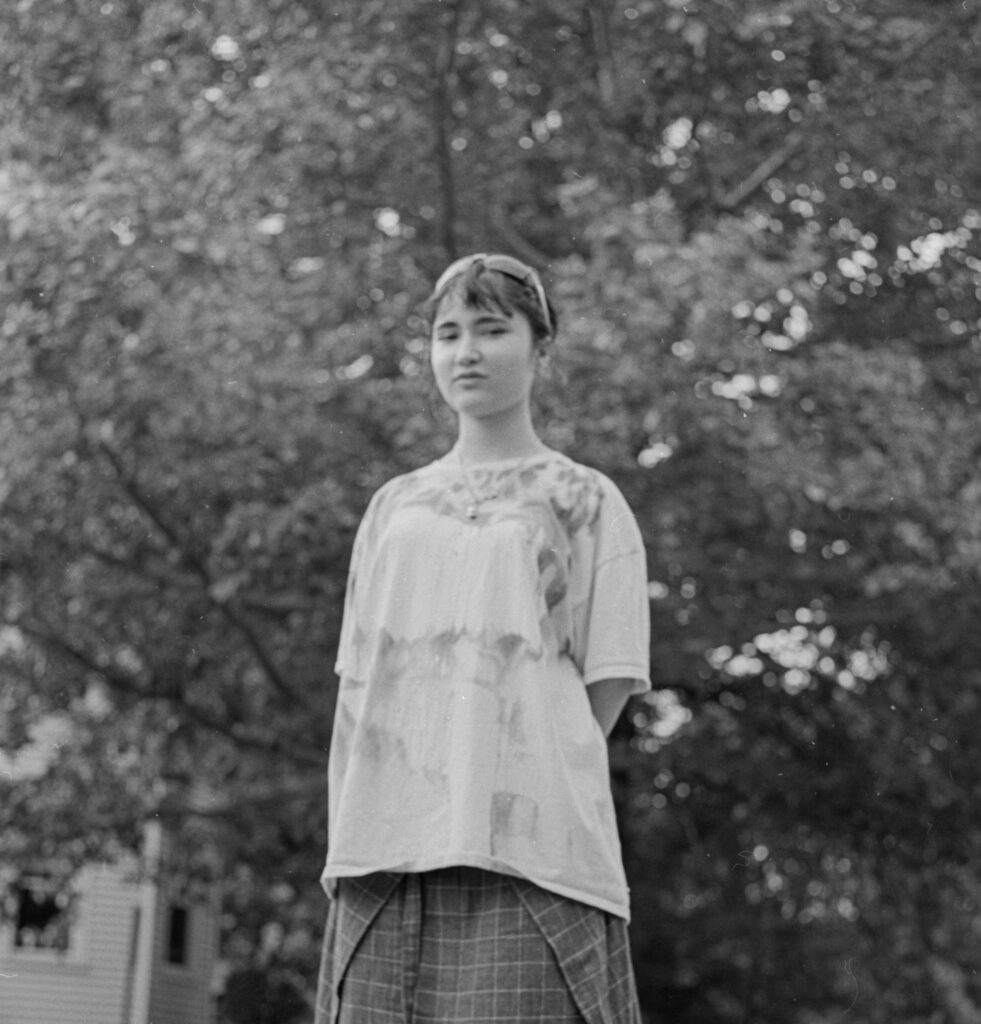
Io Perl-Strahan
Perl-Strahan joined the Carceral Connecticut Project as a research assistant in 2022, and has held several roles during its tenure. Most notably, Perl-Strahan researched and authored the CCP’s resources on policing in Hartford under the leadership of Dr. Demetrius Eudell. Working closely with co-author Celine Rogers, Perl-Strahan conducted original research on the history of Cintron v. Vaughn, the consent decree that placed the Hartford Police Department under judicial oversight from 1973-2023. Independently, she researched and authored a prologue to the consent decree, Politics and Policing in Hartford, 1970 which unearths stories of police violence and community organizing which have been otherwise “lost” to the archive. Prior to her work on policing in Hartford, Perl-Strahan collaborated with the Mayor’s Initiative for Re-Entry Affairs (MIRA) in Bridgeport, CT. She digitized their collection of client intake files in order to facilitate study of the needs, histories, and dreams of recently incarcerated Connecticut residents. Perl-Strahan has also performed a range of organizational responsibilities working across the entirety of the CCP’s digital resources, including conceptual and structural planning, line editing, image licensing, and more.
Perl-Strahan holds a BA in Anthropology from Wesleyan University and received high honors for her interdisciplinary thesis Skin Meets Hook: An Ethnography of Body Suspension. Alongside and intertwined with her research practice and commitment to carceral studies, Perl-Strahan is a visual artist and filmmaker. You can view her work on ioilex.com.
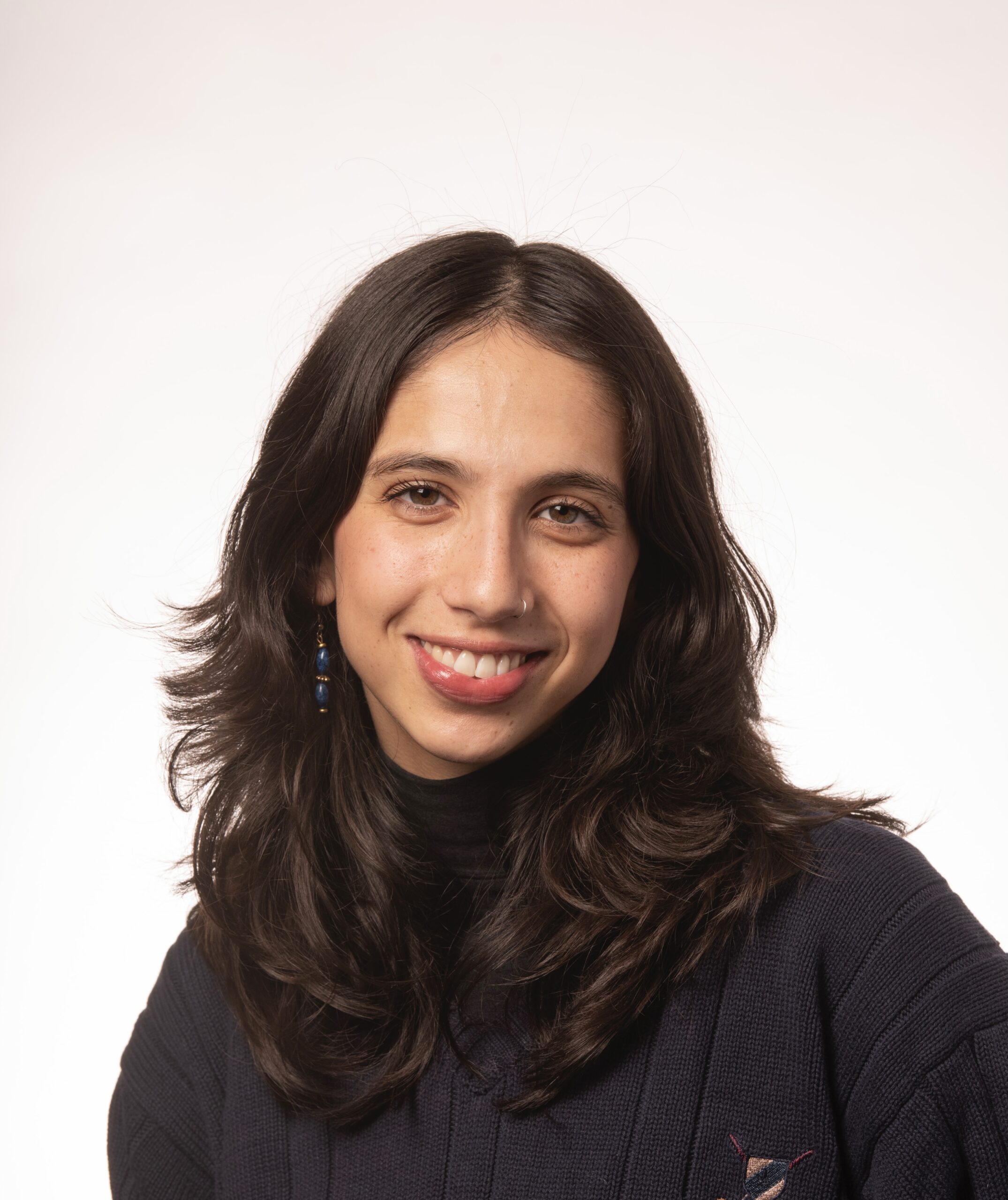
Celine Rogers
Celine Rogers joined the Carceral Connecticut Project as a Research Assistant in May of 2024. During her time with the CCP, Rogers focused most significantly on conducting an original research investigation and report into the multifaceted history of Cintron v. Vaughn, a consent decree which placed the Harford Police Department under judicial oversight from 1973-2023. Working closely with co-author Io Perl-Strahan, the team produced an interactive timeline chronologizing the extensive history of a narrative widely unknown in mainstream discussions of police violence and reform. Rogers has taken on a variety of duties during her time on the project, from thorough archival research to precise writing and copyediting, eventually working on digital web design for the CCP’s current website.
Rogers holds a BA in Sociology and American Studies from Wesleyan University. Outside of CCP, Rogers works as a Social Media Coordinator for the Community Engagement team at Rainbow Heights Club, a non-profit focused on providing a supportive community space for LGBTQ+ adults living with mental illness.
Other Participants

Sonali Chakravarti
Professor of History
Sonali Chakravarti studies questions of emotions, the law, and democratic institutions. Her current work focuses on the concept of radical enfranchisement, civil disobedience, and jury service. In her book Radical Enfranchisement in the Jury Room and Public Life, she argues for a new set of civic skills necessary for a jury of the 21st century.
Through the CCP, Chakravarti examined significant Connecticut jury trials that were at the forefront of legal and political change, and taught two courses. In “Citizens, Judges, Juries: Who Decides in Democracy?,” students developed presentations related to jury service in Connecticut, including the campaign of the 1920s and 1930s that allowed women to serve and the contemporary efforts to increase racial representation on juries. In “Theorizing the City,” a course on urban policy and politics, students examined the long legacy of Sheff v. O’Neill, the 1989 lawsuit on racially segregated schools in Hartford that continues to shape school enrollment and the distribution of resources in the city.

Mohammad Hasib
CCP Website Developer
Mohammad Hasib is a software engineer based out of Philadelphia, PA. During his engagement with the CCP, he assisted the CCP Development Team by placing the content throughout the CCP website, with a priority to ensure that content was readable and responsive throughout the flow of the user experience.
Hasib holds a BA in Computer Science from Wesleyan University and runs a web development effort, Deenops Tech Consulting, which found root in Wesleyan’s Startup Incubator.
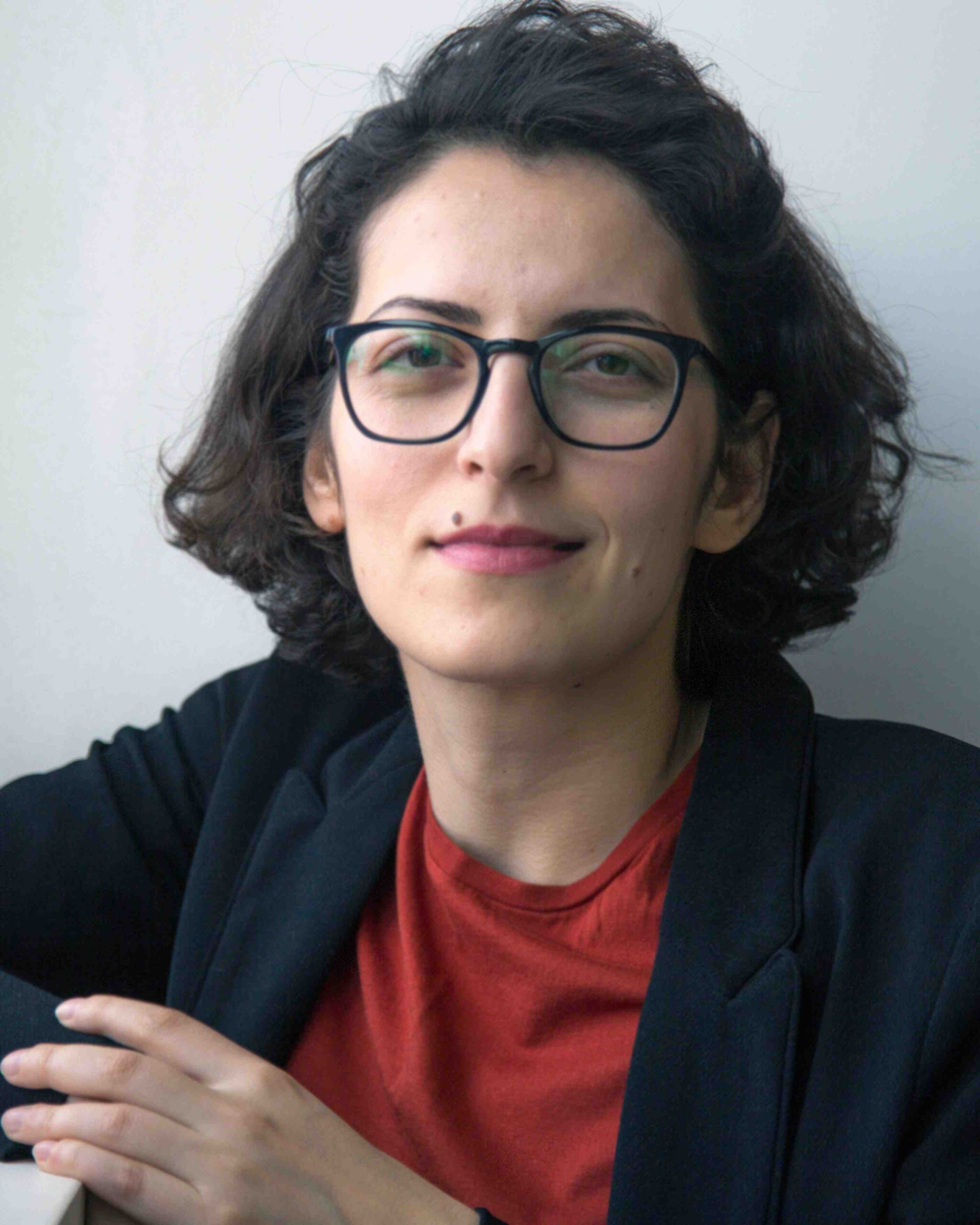
Marianna Hovhannisyan
Postdoctoral Fellow
Marianna Hovhannisyan is an art historian and research-based curator. She works at the intersection of postcolonial and decolonial archival and museum studies, visual culture, and critical race study, with the focus on the theories of metadata, art, artifacts, and folk/crafts. In 2022–23, she was the Postdoctoral Fellow at the Pembroke Center for Teaching and Research on Women, Brown University. She is the 2019 recipient of the UC Critical Refugee Studies Collective award and often collaborates with the UCLA Center for Information as Evidence. As the first EU-funded Hrant Dink Foundation Fellow, she conducted original research in the American Board Archives (Turkey). This resulted in her curatorial exhibition “Empty Fields” (2016, SALT, Istanbul), which uncovered a museum collection dispersed due to the 1915 Armenian Genocide. Within the CCP, Hovhannisyan taught “Digital and Visual Storytelling,” and “On Evidence: Archives, Museums, and Prisons.”
Hovhannisyan completed her award-winning Ph.D. dissertation in Art History, Theory, and Criticism (UCSD, 2022) and is currently working on her monograph exploring Armenian historiography as a modern example of people subjected to epistemic and colonial violence through forced displacement, archival silences, and cultural appropriations. Her writings appear in: Stedelijk Studies Journal, Displaced Archives Series, and UCLA Journal of Education and Information Studies.
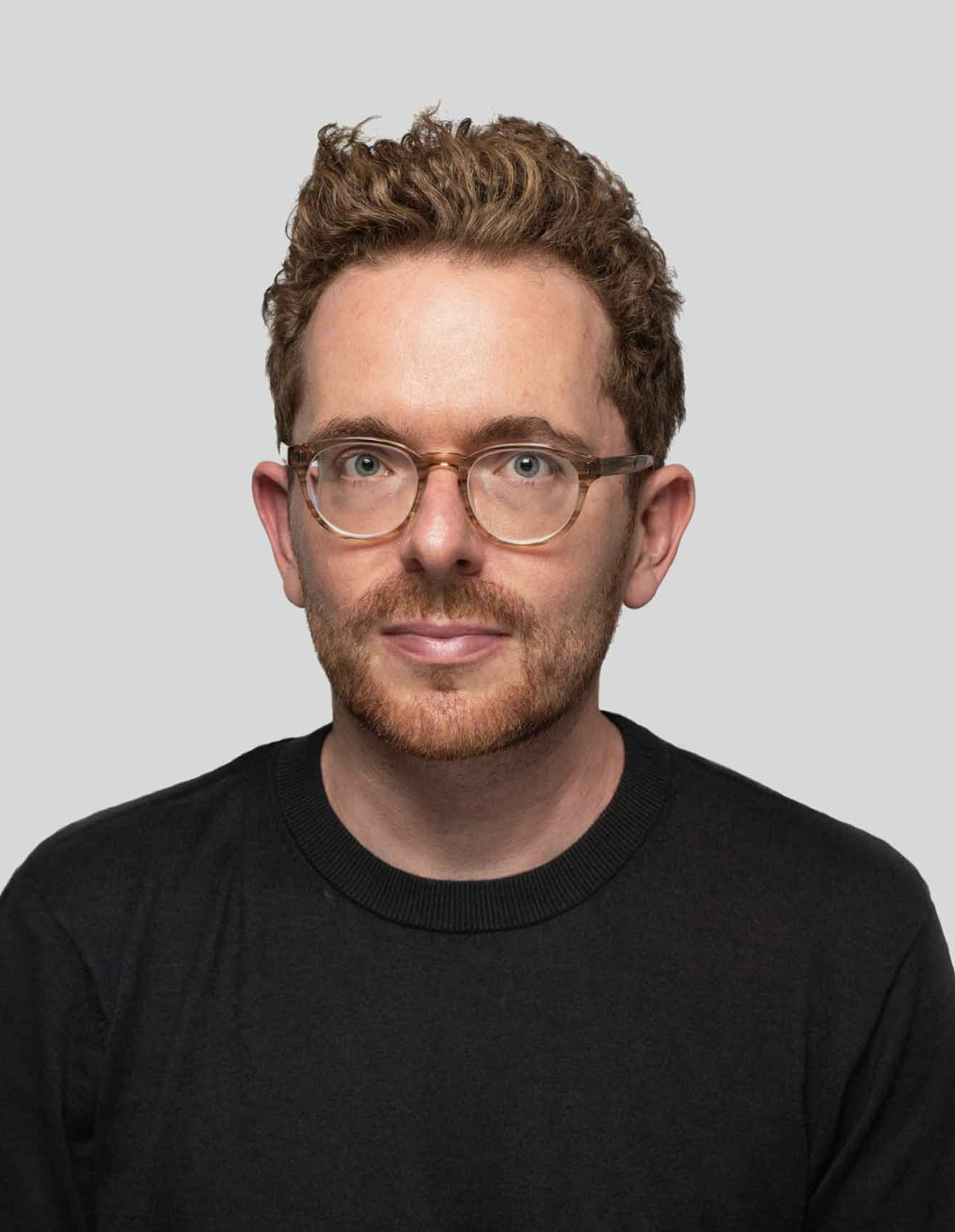
John Hulsey
Assistant Professor of Art, Vassar College
John Hulsey is an artist, filmmaker, and researcher. His first film, This Side of History, premiered at Cinéma du Réel in 2019 where it received the Prix International de la Société Civile des Auteurs Multimédia. His work has been screened and exhibited internationally in venues such as the U.S. Pavilion of the Venice Architecture Biennial, The Carpenter Center for the Visual Arts, Los Angeles Contemporary Archive, and in publications such as The New York Times, Cinéma, and Creative Time Reports. He received an MFA from the University of California Los Angeles, a maîtrise in cinema from the University of Paris-III Sorbonne Nouvelle, and is an affiliate of the Sensory Ethnography Lab and the Film Study Center at Harvard University. He is currently Assistant Professor of Art at Vassar College.
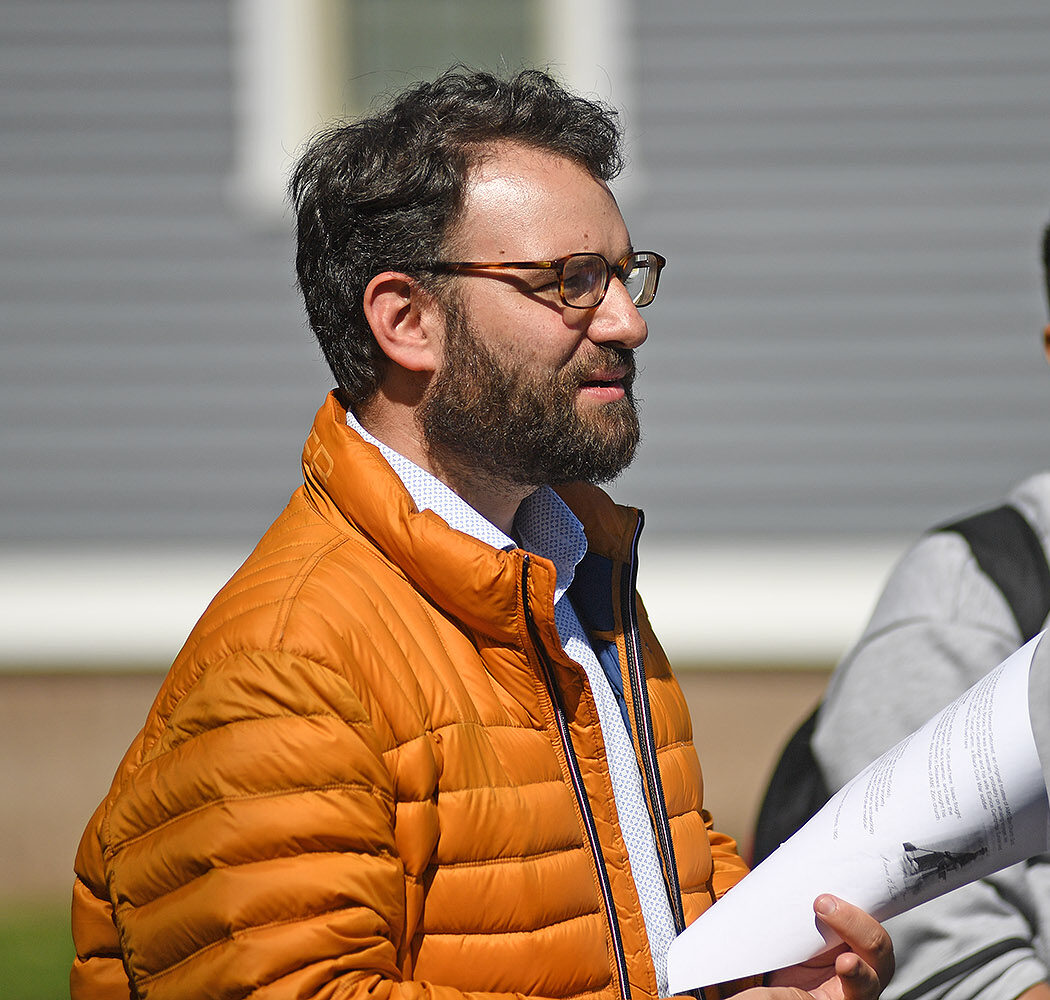
Jesse Nasta
Assistant Professor of the Practice in African American Studies
Director, Middlesex County Historical Society (MCHS)
Jesse Nasta specializes in the social and legal histories of slavery, emancipation, and African American mobility during the eight decades before the Civil War. For several years, he has involved Wesleyan students in researching, documenting, and sharing their findings on Middletown’s Beman Triangle, one of the most prominent free, property-owning, Black activist communities in New England during the antebellum and immediate post-Civil War periods.
Nasta taught several courses through the CCP. In “Race and Slavery in New England,” students worked in the Milo Wilcox Archives, an MCHS collection that documents the history of Black families in 17th and 18th-century Middletown. As part of their research, students mined the collection and assisted with the archive’s thematic re-categorization. In “The Prison State: Race, Law and Mass Incarceration” and “Carceral Connecticut” courses, students used MCHS’s repository of Middletown police logs, county jail records, and police court proceedings from the late-19th and early-20th centuries to study the long history of racial profiling in Connecticut, and to analyze on-the-ground carceral practices in the state.
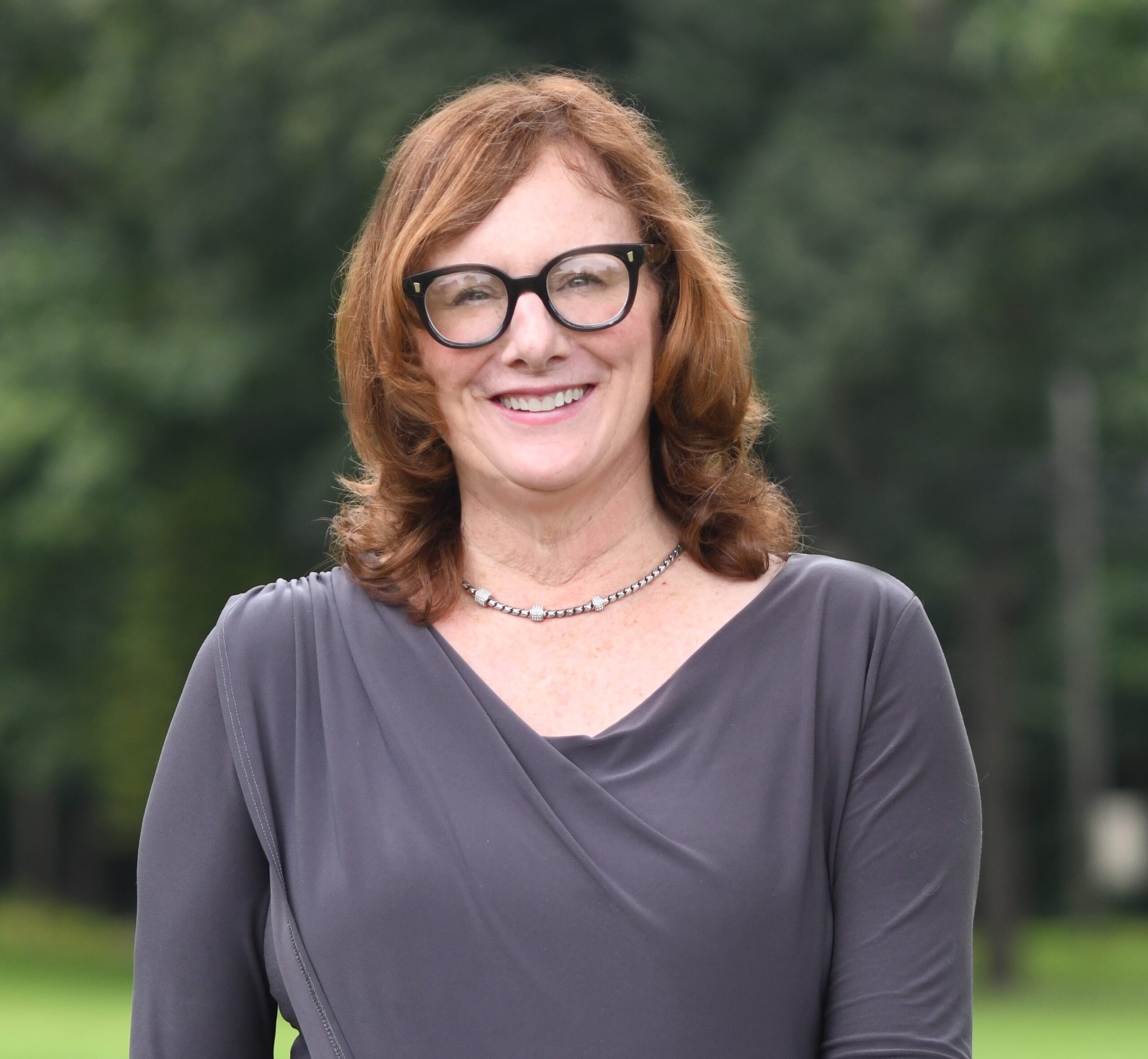
Jennifer Tucker
Professor of History and Science in Society
Jennifer Tucker is a historian of photography and visual culture. She studies the interrelations of art and science, photography, and mass visual culture, with a specialization in 19th to mid-20th century U.S., British, and trans-Pacific history. Tucker’s original scholarship has illuminated the co-evolution of gun manufacturing and camera technology. Through the CCP, she offered new courses introducing research methods with visual sources, including historic photographic collections. They include “Visual Methods across the Humanities and Social Sciences”; “Reenacting Justice: Guns in America” (a documentary performance course); and “Guns and Society.”
Tucker regularly consults and collaborates with museums and cultural partners, including the Lucas Museum of Narrative Art, the Yale Peabody Museum of Natural History, and Coltsville National Historic Park (Hartford, Conn.).
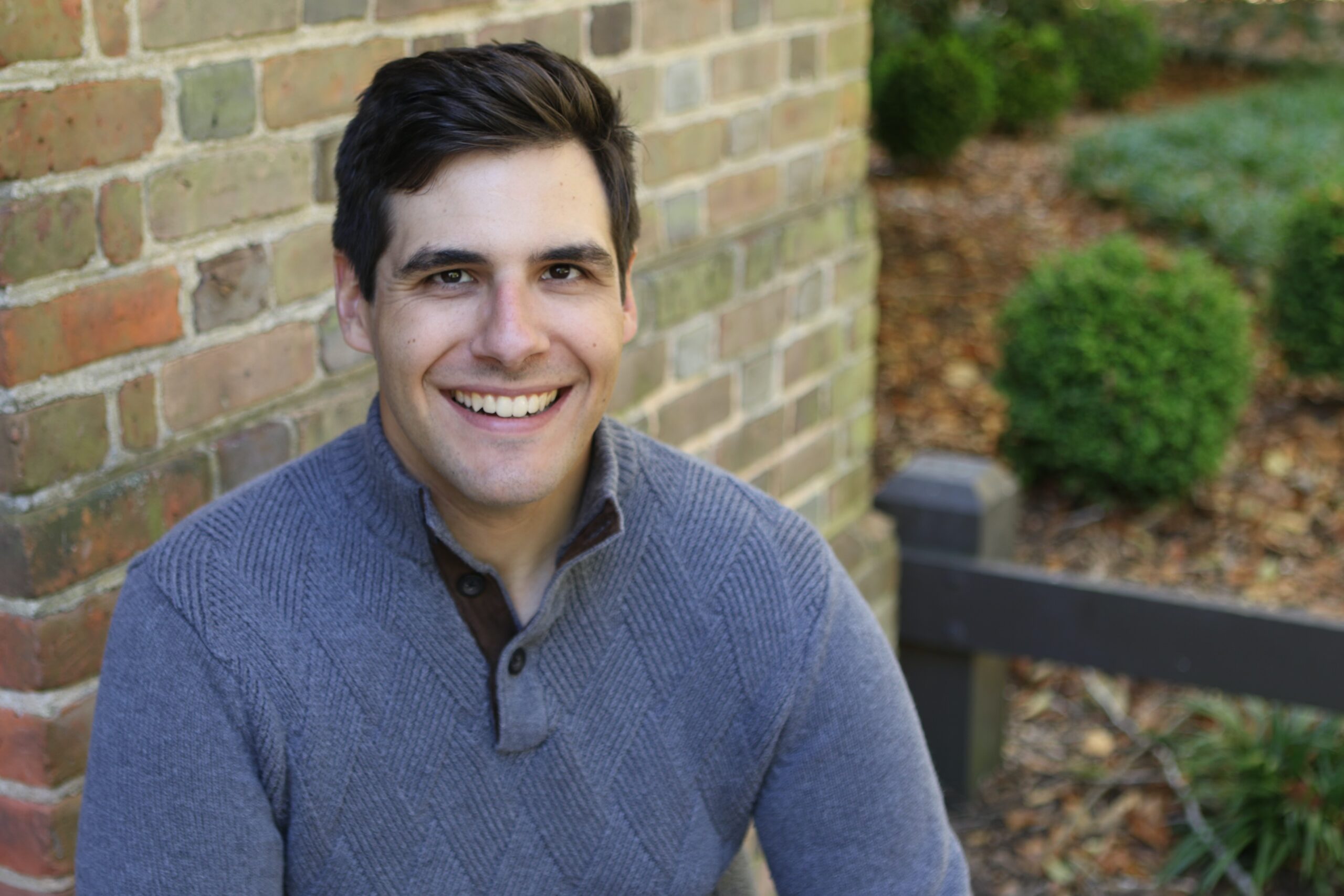
Charles “Chuck” Weisenberger
Postdoctoral Fellow
Charles Weisenberger specializes in African-American history, slavery, and abolition in the early United States. He is an alumnus of Washington College in Chestertown, Maryland, and received his doctorate at the University of Massachusetts Amherst. His dissertation examines the history of the Telfair family of Savannah, Georgia, the state’s largest slaveowners before the Civil War. He considers the family’s social, political, and economic connections beyond the South, and the implications of those connections for the people they enslaved. His secondary research interest is the history of abolition in the Connecticut River Valley. Dr. Weisenberger is a committed public historian, and has worked previously for the Legacy of Slavery project at the Maryland State Archives, the David Ruggles Center for History and Education, the Emily Dickinson Museum, and the Colonial Williamsburg Foundation. Within the CCP, Weisenberger taught “The Memory of Slavery in Monuments, Museums, and Media,” and “Introduction to Public History.

Bryan Winston
Postdoctoral Fellow
Bryan Winston specializes in migration history, oral history, and digital humanities, and is currently completing his first book: Mexican Corridors: Migration and Placemaking in the Lower Midwest. The book is a transnational account and analysis of ethnic Mexican life in Missouri, Kansas, and Nebraska during the first half of the twentieth century. Complementing the monograph in progress is a digital history project, titled “Mapping the Mexican Midwest,” that visualizes Mexican migration routes, institutions, and social networks in the region.
Prior to his arrival at Wesleyan, Winston was the project manager and postdoctoral fellow for the Dartmouth Digital History Initiative, a digital humanities project that launched open-source tools that make oral histories more searchable and accessible. He was also the Associate Director for two oral history projects: the Dartmouth Vietnam Project and Dartmouth Black Lives. Within the CCP, Winston taught “Visualizing the Past: Contesting Space with Digital Mapping,” and “Mapping The Borderlands: The U.S./Mexico Border and Digital Storytelling.”
Acknowledgements
The CCP would like to thank the following individuals who generously helped bring this project to life in a variety of ways:
Attorney Sydney T. Schulman, Lead Attorney for Plaintiffs in Cintron v. Vaughn
Sandy Uitti, Paralegal to Attorney Schulman
Maureen Heher, Historical Research Information Librarian, Hartford Public Library
Reggie Hales, Publisher of Inquiring News
Amy Bello, Administrative Assistant, African American Studies Department, Wesleyan University
Elizabeth McCormick, Associate Director of Corporate, Foundation, and Government Grants, Wesleyan University
Julianne Varacchi, Senior Director of Visuals, CT Public
Earl Bloodworth, Former Director of Mayor’s Initiative for Re-Entry Affairs (MIRA)
Jeffrey Lamson, Historian of Policing and PhD Candidate, Northeastern University
The Hartford History Center at the Hartford Public Library
The Connecticut State Library
Thank you to all the Wesleyan research assistants who worked on the grant.
